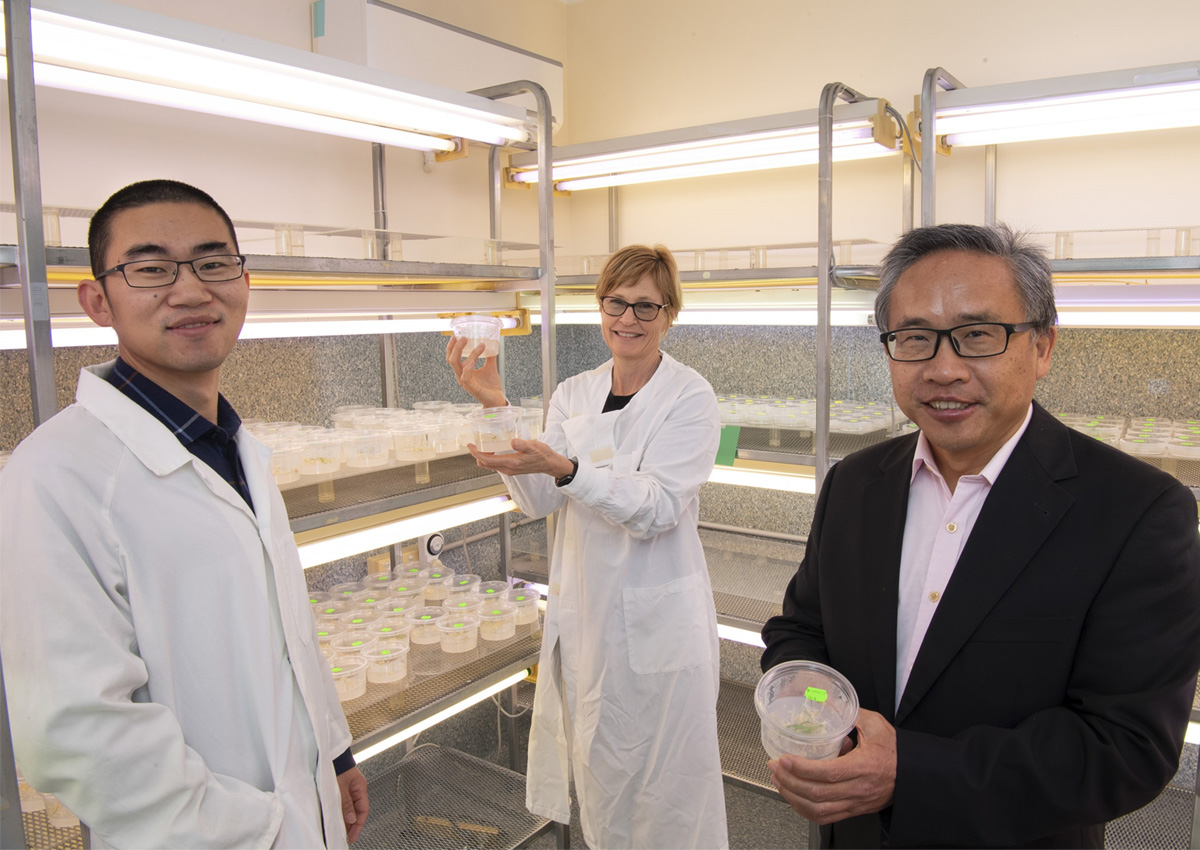
Gene Editing Breakthrough Seen to Improve Breeding of Barley Crops
August 5, 2020| |
The Western Crop Genetics Alliance, a partnership between the Department of Primary Industries and Regional Development (DPIRD) and Murdoch University, has made a recent breakthrough in gene editing technology that will pave the way for barley varieties with improved yield, quality, and nitrogen-use efficiency. The new technique enables barley genes to be accurately ‘turned on and off' to create a superior trait – something that could not be achieved in Australian varieties with existing technology.
Professor Chengdao Li, Alliance director, said the new technique, called Doubled Haploid CRISPR, provided scientists with a tool to precisely modify existing barley lines and craft enhanced varieties better suited to local conditions. Professor Li said the new technique was a technological leap for breeding new varieties that overcame the shortcomings of existing gene editing platforms for barley. He added the Doubled Haploid CRISPR technology used the doubled haploid technique, which is used to generate fixed barley lines for plant breeders and researchers and has resulted in several commercial varieties.
The researchers tested this approach on four major Australian barley varieties and achieved a successful editing rate of more than 50 percent, which is comparable to the Scottish control variety, in the same period of 10 months. Professor Li said the new technique would create new plant breeding opportunities not only for barley but for other crops as well.
For more details, read the news article in DPIRD News.
| |
You might also like:
- Genetic Discovery Explains Barley's Sodium Tolerance
- University of Adelaide Researchers Uncover Barley's Brewing Secrets
- Evaluation of HvPAPhy_a Gene in Barley Using CRISPR-Cas9 and TALENs
Biotech Updates is a weekly newsletter of ISAAA, a not-for-profit organization. It is distributed for free to over 22,000 subscribers worldwide to inform them about the key developments in biosciences, especially in biotechnology. Your support will help us in our mission to feed the world with knowledge. You can help by donating as little as $10.
-
See more articles:
-
News from Around the World
- Svalbard Global Seed Vault Starts a Century-long Seed Experiment
- Nigerians Ready to Know More About GM Crops
- Study Shows Plants Regulate Growth-Inhibiting Hormones to Survive
- EFSA Releases Scientific Opinion on GM Oilseed Rape Ms8 x Rf3 x GT 73
-
Research Highlights
- Gene Inserted in Tobacco Plant Sheds Light to Increased Heat Stress Resistance
- Overexpression of Atsob3-6 Gene Variant Improves Seed Size, Seed Weight and Seedling Emergence in Camelina
-
Plant
- OsABCI7 and OsHCF222 Interaction Stabilizes Rice Thylakoid Membrane
- Gene Editing Breakthrough Seen to Improve Breeding of Barley Crops
- Researchers Map Largest, Most Complex CRISPR System
- Webinar: The Challenges of Communicating about Gene Technologies
-
Health
- More Countries Join the COVID-19 Food Coalition
- Study Finds SARS-CoV-2 Has Six Strains
-
Read the latest: - Biotech Updates (April 17, 2024)
- Gene Editing Supplement (April 10, 2024)
- Gene Drive Supplement (February 22, 2023)
-
Subscribe to BU: - Share
- Tweet

